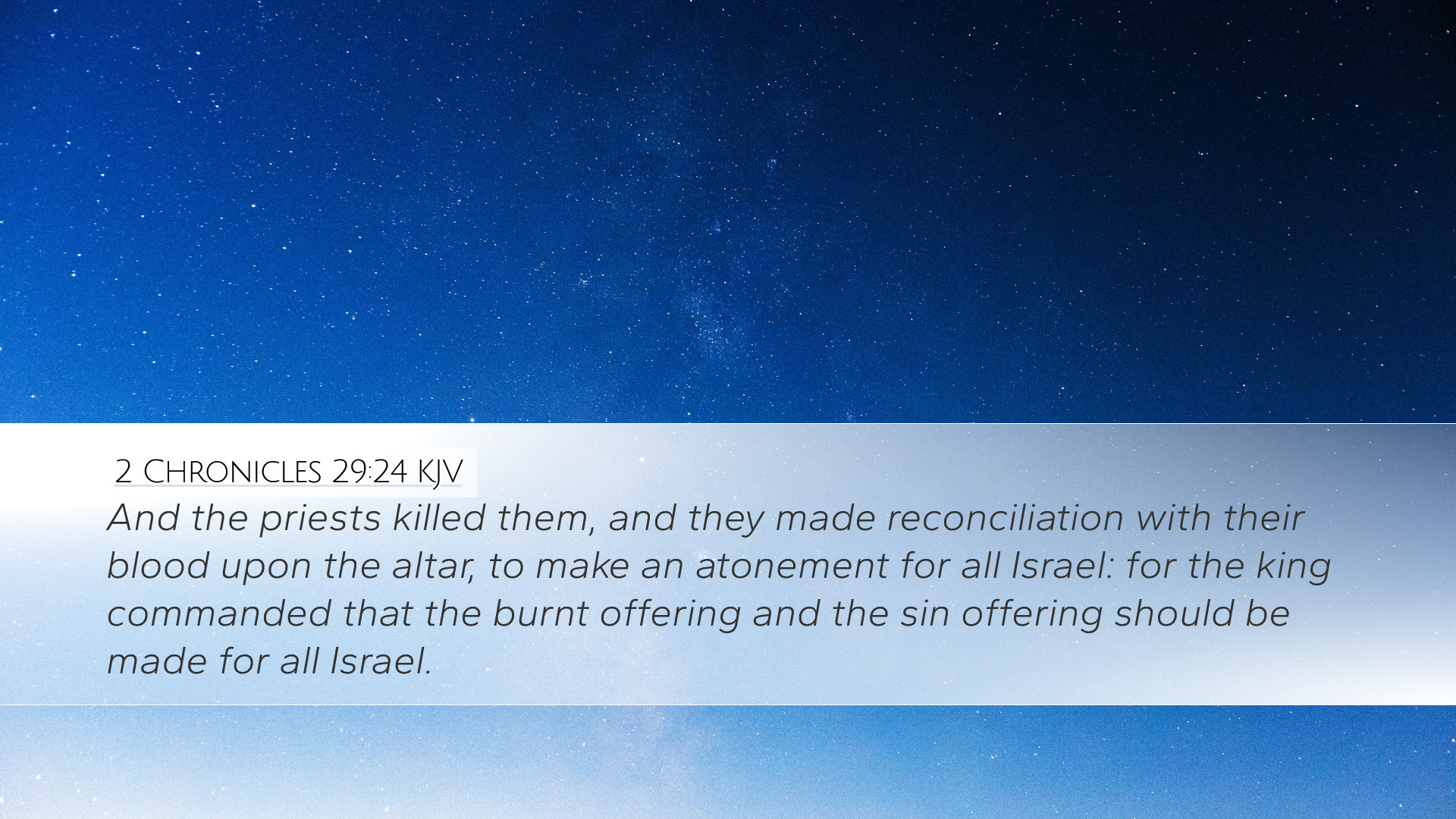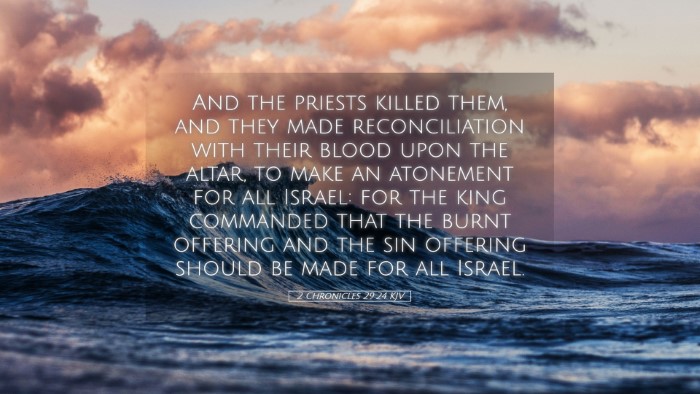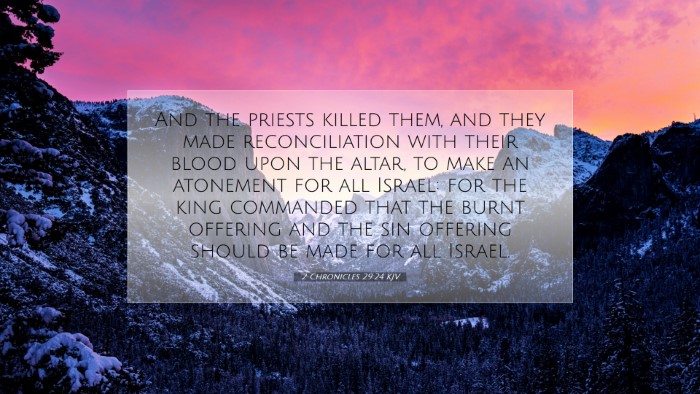Commentary on 2 Chronicles 29:24
Verse Introduction: "And the priests killed them, and they made reconciliation with their blood upon the altar, to make an atonement for all Israel; for the king commanded that the burnt offering and the sin offering should be made for all Israel." (2 Chronicles 29:24)
Historical Context
This verse takes place during the reign of King Hezekiah, a ruler known for his religious reforms and efforts to restore proper worship in Judah after a period of idolatry and neglect of the temple. These reforms included the reinstitution of sacrifices and burnt offerings, which had fallen into disuse.
The Significance of the Sacrifices
Matthew Henry elaborates that the sacrificial system was central to the Old Covenant and served as a means of atonement for sin. The blood of the sacrifices was seen as a purifying agent, essential for reconciling the people to God. This act of sacrifice was not merely ritualistic but was meant to symbolize the seriousness of sin and the need for atonement.
Priestly Duties
Albert Barnes emphasizes the role of the priests in performing these sacrifices. Their involvement illustrates the structured approach to worship and atonement in Jewish tradition. The priests acted as mediators between God and the people, and their function was critical for maintaining the covenant relationship with God.
Theological Implications
The act of reconciliation via sacrifices highlights significant theological principles in the broader scope of Scripture. The notion of requiring blood for atonement can be seen as a foreshadowing of ultimate reconciliation through Christ’s sacrifice.
Reconciliation with God
Adam Clarke points out that the phrase "made reconciliation" carefully denotes the process of bridging the gap of sin between God and His people. The necessity for reconciliation underscores the brokenness introduced by sin, which necessitates a means of restoration. This serves as a foundational concept for understanding the doctrine of atonement in both the Old and New Testaments.
Covenant Community
Furthermore, the collective nature of the sacrifices "for all Israel" signifies the communal aspect of worship and repentance. This communal atonement reflects God’s desire for collective holiness among His people, reinforcing the idea that individual and communal sins must be addressed within the community of believers.
Practical Applications
When interpreting this verse, modern pastors and theologians can extract several applications:
- The Seriousness of Sin: The necessity of blood for atonement serves as a reminder of the weight of sin and its consequences.
- The Role of Mediators: Just as priests mediated between God and Israel, contemporary leaders in faith facilitate access to God through Christ.
- Collective Repentance: This passage invites congregations to engage in community repentance and restoration, emphasizing the importance of corporate worship.
Conclusion
2 Chronicles 29:24 not only sheds light on the historical practices of Israel but also encapsulates timeless theological principles regarding atonement, mediation, and community responsibility in worship. As scholars and theologians reflect on this verse, may they gain deeper insights into the nature of God’s holiness and the provision for reconciliation through sacrifice, culminating in the ultimate sacrifice of Christ. The study of this passage encourages a deeper understanding of worship and the seriousness of sin, which should lead believers to a posture of humility and recognition of God's grace.


